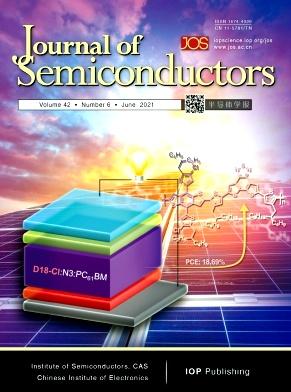A review on GaN HEMTs: nonlinear mechanisms and improvement methods
IF 5.3
4区 物理与天体物理
Q2 PHYSICS, CONDENSED MATTER
引用次数: 0
Abstract
The GaN HEMT is a potential candidate for RF applications due to the high frequency and large power handling capability. To ensure the quality of the communication signal, linearity is a key parameter during the system design. However, the GaN HEMT usually suffers from the nonlinearity problems induced by the nonlinear parasitic capacitance, transconductance, channel transconductance etc. Among them, the transconductance reduction is the main contributor for the nonlinearity and is mostly attributed to the scattering effect, the increasing resistance of access region, the self-heating effect and the trapping effects. Based on the mechanisms, device-level improvement methods of transconductance including the trapping suppression, the nanowire channel, the graded channel, the double channel, the transconductance compensation and the new material structures have been proposed recently. The features of each method are reviewed and compared to provide an overview perspective on the linearity of the GaN HEMT at the device level.GaN HEMT 综述:非线性机制和改进方法
GaN HEMT 具有高频率和大功率处理能力,是射频应用的潜在候选器件。为确保通信信号的质量,线性度是系统设计中的一个关键参数。然而,GaN HEMT 通常会受到非线性寄生电容、跨电导、沟道跨电导等非线性因素的影响。其中,跨导降低是造成非线性的主要原因,主要归因于散射效应、接入区电阻增加、自热效应和陷波效应。根据这些机理,最近有人提出了器件级的跨导改进方法,包括抑制陷波、纳米线沟道、分级沟道、双沟道、跨导补偿和新材料结构。我们对每种方法的特点进行了回顾和比较,以便从器件层面对 GaN HEMT 的线性度进行全面透视。
本文章由计算机程序翻译,如有差异,请以英文原文为准。
求助全文
约1分钟内获得全文
求助全文
来源期刊

Journal of Semiconductors
PHYSICS, CONDENSED MATTER-
CiteScore
6.70
自引率
9.80%
发文量
119
期刊介绍:
Journal of Semiconductors publishes articles that emphasize semiconductor physics, materials, devices, circuits, and related technology.
 求助内容:
求助内容: 应助结果提醒方式:
应助结果提醒方式:


